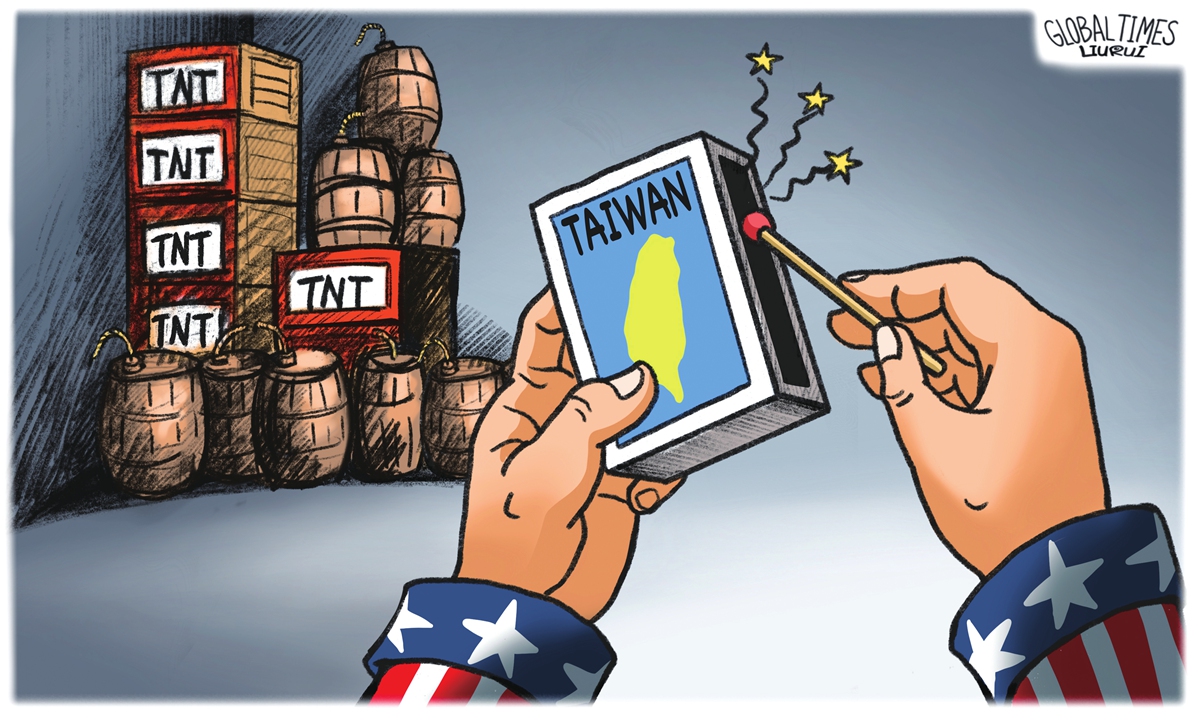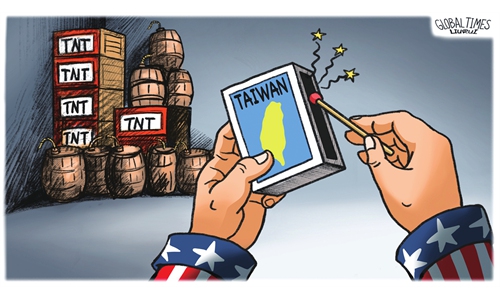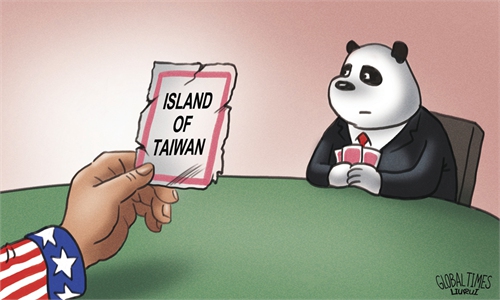
Illustration:Liu Rui/GT
Nancy Pelosi, Speaker of US House of Representatives, visited the island of Taiwan on Tuesday despite China's strong opposition. The Chinese People's Liberation Army (PLA) launched a series of live-fire military drills in different areas that encircle the island, while the Ministry of Commerce and the General Administration of Customs have halted the import of some products from Taiwan as well as natural sand exports to Taiwan. It's quite rare to see such tough rhetoric, intense actions and enormous deterrence initiated by the Chinese side, indicating that China is more confident and capable than ever of safeguarding national sovereignty and territorial integrity, and ultimately towards realizing national reunification.Pelosi's Taiwan visit in the twilight of her political career serves three purposes. First, to use the visit to draw attention to her at home and abroad, to consolidate her image as a "democratic fighter," shape her political legacy as a so-called staunch supporter of Taiwan island in an attempt to draw a perfect conclusion to her political career. Second, to further solidify the direction of US foreign policy toward China, raising the costs of improving the China-US relationship and cementing it on a new Cold War track. Third, to send signals to the US' global allies and partners via her visit to the Asia-Pacific, trying to create a "global pro-Taiwan alliance" as a greater constraint on Chinese mainland's actions toward Taiwan secessionists.
Of course, Pelosi's visit to Taiwan is definitely not just a political show by her alone, but the result of collusion by domestic pro-Taiwan and anti-China forces in the US. It should be noted that the Biden administration's inaction to Pelosi's visit will undermine the results China and the US have achieved in dozens of high-level contacts over the past year, and cast a bigger shadow over the future of bilateral relations.
The Taiwan question is the most important, central and sensitive issue in the China-US relationship. The development of bilateral relations would not have been possible without the visionary leadership of China and the US in the 1970s to reach a consensus on the Taiwan question. In the Joint Communiqué on the Establishment of Diplomatic Relations between China and the US, the US "recognizes the Government of the People's Republic of China as the sole legal Government of China." At present, the US has now completely reneged on its commitment to the Taiwan question, attempting to use Taiwan-related issues to contain China, continuously distorting and hollowing out the one-China principle by strengthening official contacts with the island of Taiwan and supporting "Taiwan independence" forces. Pelosi's visit is a manifestation of the US' betrayal of its promises, and tramples on China's core interests.
What Pelosi and her supporters need to understand is that her visit to Taiwan has sparked a great deal of concern and outrage among the Chinese people, generating a surge of angry public sentiment on Chinese social media no less than that any previous major friction between China and the US had caused. Pelosi's decision to visit Taiwan in order to pander to US domestic pro-Taiwan and anti-China forces and instigate "Taiwan independence" secessionist forces on the island is placing herself in opposition to 1.4 billion Chinese people, a move that actually reinforces the people's determination and will to achieve national reunification. At present, a series of Chinese countermeasures have already begun, which are not a mere gesture or a one-off.
The author is deputy director of the Department for Asia-Pacific Studies at the China Institute of International Studies. opinion@globaltimes.com.cn


